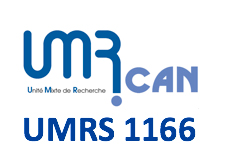Early diagnosis and better rhythm management to improve outcomes in patients with atrial fibrillation: the 8th AFNET/EHRA consensus conference.
Renate B Schnabel, Elena Andreassi Marinelli, Elena Arbelo, Giuseppe Boriani, Serge Boveda, Claire M Buckley, A John Camm, Barbara Casadei, Winnie Chua, Nikolaos Dagres, Mirko de Melis, Lien Desteghe, Søren Zöga, David Duncke, Lars Eckardt, Christoph Eisert, Daniel Engler, Larissa Fabritz, Ben Freedman, Ludovic Gillet, Andreas Goette, Eduard Guasch, Jesper Hastrup Svendsen, Stéphane N Hatem, Karl Georg Haeusler, Jeff S Healey, Hein Heidbuchel, Gerhard Hindricks, F D Richard Hobbs, Thomas Hübner, Dipak Kotecha, Michael Krekler, Christophe Leclercq, Thorsten Lewalter, Honghuang Lin, Dominik Linz, Gregory Y H Lip, Maja Lisa Løchen, Wim Lucassen, Katarzyna Malaczynska-Rajpold, Steffen Massberg, Jose L Merino, Ralf Meyer, Lluıs Mont, Michael C Myers, Lis Neubeck, Teemu Niiranen, Michael Oeff, Jonas Oldgren, Tatjana S Potpara, George Psaroudakis, Helmut Pürerfellner, Ursula Ravens, Michiel Rienstra, Lena Rivard, Daniel Scherr, Ulrich Schotten, Dipen Shah, Moritz F Sinner, Rüdiger Smolnik, Gerhard Steinbeck, Daniel Steven, Emma Svennberg, Dierk Thomas, Mellanie True Hills, Isabelle C van Gelder, Burcu Vardar, Elena Palà, Reza Wakili, Karl Wegscheider, Mattias Wieloch, Stephan Willems, Henning Wit, André Ziegler, Matthias Daniel Zink, Paulus Kirchhof.
Eurospace.2022 Jul 27.
PubMed 35894842 – DOI:10.1093/europace/euac062
Abstract
Aims
Despite marked progress in the management of atrial fibrillation (AF), detecting AF remains difficult and AF-related complications cause unacceptable morbidity and mortality even on optimal current therapy.
Methods and results
This document summarizes the key outcomes of the 8th AFNET/EHRA Consensus Conference of the Atrial Fibrillation NETwork (AFNET) and the European Heart Rhythm Association (EHRA). Eighty-three international experts met in Hamburg for 2 days in October 2021. Results of the interdisciplinary, hybrid discussions in breakout groups and the plenary based on recently published and unpublished observations are summarized in this consensus paper to support improved care for patients with AF by guiding prevention, individualized management, and research strategies. The main outcomes are (i) new evidence supports a simple, scalable, and pragmatic population-based AF screening pathway; (ii) rhythm management is evolving from therapy aimed at improving symptoms to an integrated domain in the prevention of AF-related outcomes, especially in patients with recently diagnosed AF; (iii) improved characterization of atrial cardiomyopathy may help to identify patients in need for therapy; (iv) standardized assessment of cognitive function in patients with AF could lead to improvement in patient outcomes; and (v) artificial intelligence (AI) can support all of the above aims, but requires advanced interdisciplinary knowledge and collaboration as well as a better medico-legal framework.
Conclusions
Implementation of new evidence-based approaches to AF screening and rhythm management can improve outcomes in patients with AF. Additional benefits are possible with further efforts to identify and target atrial cardiomyopathy and cognitive impairment, which can be facilitated by AI.
Keywords
AFNET; Anticoagulation; Artificial intelligence; Atrial cardiomyopathy; Atrial fibrillation; Bleeding; Catheter ablation; Cognitive function; Consensus statement; Cost; Dementia; EHRA; Guidelines; Heart failure; Integrated care; Outcomes; Quality of care; Research; Research priorities; Rhythm management; Screening; Stroke; Technology.


